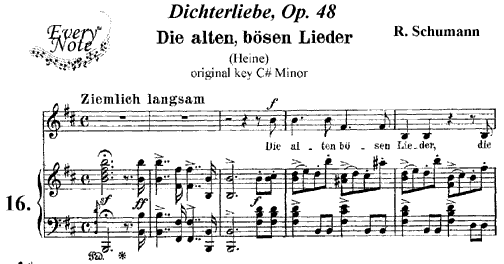
March 29, 2012, by Stephen Mumford
Love Lieder
If there be but one single thing that each and every human requires, without any fear of contradiction we say that it is love. It is not wealth, nor status; except insofar as some believe that these can bring them love – a conjecture falling far short of verification. Some say they want happiness, and yet a little further reflection reveals that love is the real thing that secures it.
Love – this most sought-after, prized and cherished of human feelings – while so badly wanted, is also so badly understood. It can produce joy but also heart-ache. Unrequited, it is the source of the greatest pain. It can also be misdirected and spurned and lead us to regret.
How might we understand better this precious thing, which stands next only to food among life’s essentials? The arts are surely the best insight: in music and song, poetry and prose, dance and sculpture.
On March 28th Professor Richard Stokes of the Royal Academy of Music gave a public lecture at the University of Nottingham hosted jointly by the departments of German and Music. His topic was Schumann’s Dichterliebe (The Poet’s Love) of 1840, one of the finest examples of 19th Century German lieder (songs). Such songs were produced by classical composers setting poetry to words: in this case a poem of the great Heinrich Heine. Nothing in the classical tradition could better be thought of as forerunner of the modern pop song than lieder. They are short and punchy and, as in this case, speak of love and lust.
Professor Stokes talked the audience through the poem, reciting entirely from memory and explaining all the poet’s allusions, exhibiting once more how love captures us, thwarts us, but has a capacity to fulfil us like nothing else. And what better display could the professor have given us of poetry’s power to educate us of love’s mystery?
He then proceeded to play the piece set to Schumann’s music and the audience of academics and public sat together in absolute silence, joined in their shared tranquillity and contemplation of the human condition.
Dichterliebe contains so many wonderful poems. As a flavour, I offer just one:
Wenn ich in deine Augen seh’,
So Schwindet all’ mein Leid und Weh;
Doch wenn ich küsse deinen Mund,
So werd’ ich ganz und gar gesund.
Wenn ich mich lehn’ an deine Brust,
Kommt’s über mich wie Himmelslust;
Doch wenn du sprichst: ich liebe dich!
So muß ich weinen bitterlich.
[When I look into your eyes,
All my pain and sorrow vanish;
But when I kiss your lips,
Then I am wholly healed.
When I lay my head against your breast,
Heavenly bliss steals over me;
But when you say: I love you!
I must weep bitter tears]
Trans: Richard Stokes: The Book of Lieder (Faber, 2005)
No comments yet, fill out a comment to be the first

Leave a Reply